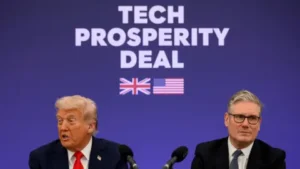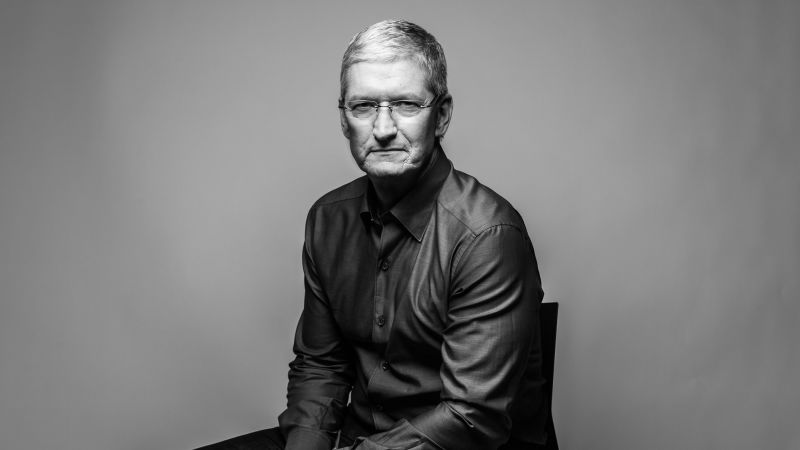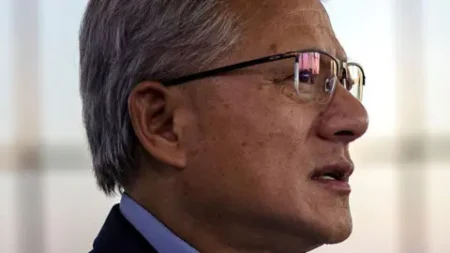In a striking move that reverberated through the financial and tech industries, two research analysts from LightShed Partners expressed their belief that Apple, the iconic technology firm, could be due for a significant transformation at the executive level. This unexpected call for a leadership change centers around the company’s long-standing CEO, Tim Cook, who has held the reins since 2011 after succeeding visionary founder Steve Jobs. Under Cook’s leadership, Apple’s market valuation has ballooned to an impressive $3 trillion. Still, doubts about his suitability in continuing the trajectory of innovation and growth in an increasingly competitive environment have sparked discussions about potential leadership changes.
Walter Piecyk and Joe Galone of LightShed Partners have raised pointed questions regarding Cook’s effectiveness in steering the company, particularly as it grapples with the rapidly evolving landscape of artificial intelligence (AI). Their critical stance comes at a time when the pressure is mounting on Apple to rejuvenate its flagship product line, especially with declining sales in its smartphone division, which has traditionally been the backbone of its revenue. The analysts argue that Apple requires a CEO with a clear focus on product innovation and development rather than operational logistics, highlighting a perceived disconnect between Cook’s management style and the immediate needs of a company facing fierce competition in the AI domain.
Replacing Cook, however, presents a complex dilemma for Apple. Currently, the company is navigating changes in its C-suite, which could distract from its core operations if a new CEO is brought in at such a critical juncture. Tim Cook enjoys substantial support from the company’s board of directors and possesses a reputation akin to other influential leaders in corporate America, such as Disney’s Bob Iger and JPMorgan Chase’s Jamie Dimon. While Cook’s leadership has witnessed Apple’s shares soaring, skepticism remains about his approach to innovation. Analysts, including Ted Mortonson from Baird, emphasize that Apple requires a “tech visionary” to maintain its edge in a landscape where AI is becoming increasingly central to technological development.
Despite the doubts expressed by Piecyk and Galone, there is little to suggest that Cook is on the verge of departure. During his tenure, Apple’s product portfolio has expanded significantly with successful launches such as the Apple Watch, AirPods, and various digital services, showcasing his ability to lead the company through diversification after the iPhone. Nevertheless, many industry observers see the ongoing developments in AI as critical indicators of Apple’s future trajectory, with suggestions that fresh leadership may indeed be necessary to rekindle innovation.
Apple’s struggles in AI have become glaringly apparent, especially following a delay in the rollout of an upgraded Siri that was meant to compete with existing AI solutions from companies like OpenAI and Google. The inability to present substantial progress in this field has led many, including Creative Strategies’ Ben Bajarin, to question Apple’s commitment and capability in AI. While initiatives such as Apple Intelligence have emerged, aimed at enhancing user experience through advanced features, analysts like Thomas Martin indicate that the company risks being outpaced by competitors unless it can adopt agile strategies to adapt to the changing tech environment.
Amid increasing competition and challenges such as regulatory pressures, tariffs, and the looming antitrust lawsuits, Apple’s leadership faces substantial scrutiny. The culmination of these pressures exposes potential vulnerabilities in the company’s innovation strategies. Critics argue that further changes in leadership may detract from Apple’s efforts to streamline its AI initiatives and point towards a need for stability rather than upheaval.
Cook’s legacy thus far is marked by operational success and impressive growth metrics, but analysts warn that the current landscape requires a more rapid response to technological trends, especially with AI at the forefront. As the tech industry witnesses significant shifts and disruptions, the dialogue around potential leadership changes at Apple raises fundamental questions about the company’s ability to adapt and thrive in this dynamic environment. Tim Cook’s future as CEO may ultimately hinge on his capacity to pivot Apple’s focus towards fostering groundbreaking innovation while addressing the growing concerns surrounding AI advancements. The stakes are high as Apple examines how to maintain its prominence in a fiercely competitive landscape while ensuring that any leadership changes, if deemed necessary, do not jeopardize its ongoing operations and brand equity.











